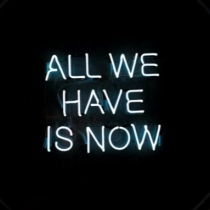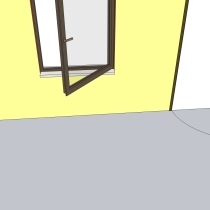Journaling may make you feel worse if you are focusing on negative thoughts, experiences, or emotions. You may also feel worse if you expect journaling to be a quick solution to your problems, since this is not really how journaling works.
Journaling, much like meditation, is a process. It takes time to actually feel the benefits, but when they come, they are very noticeable and can really bring a big change in your life.
While journaling can give you relatively quick benefits such as better understanding your thoughts and emotions and working through them, many times, this process will just take some time, and patience.
To better understand why journaling is not working for you, try to think about these things:
- What are your expectations from journaling, and are they realistic? Remember, journaling most likely will not provide an immediate solution to your problems.
- What are you focusing on when you are journaling? Do you mainly focus on negative things and cycle through them, or do you spend time on a specific thing and try to understand it in an attempt to grow from it?
- Is the kind of journaling you are doing right for you? There are different forms of journaling, such as gratitude journaling, and reflective journaling. Try to find the one that works best for you.
- Have you thought about professional help? Many people dismiss professional help out of embarrassment, or out of the fact that it is not very socially acceptable in many places. The truth is that everyone has problems in one way or another, and most people can seriously benefit from professional help.
Try to find the journaling method that is right for you and that works best for you, keep experimenting with it, and don't rule out seeking help.
It's never too late to start journaling. Journaling can make a difference for any age, regardless if you are in your teens, 20s, or 70s. The act of journaling is a personal one, it allows you to better understand yourself, and to help you solve and better understand your inner conflicts, thoughts, feelings, and emotions. These are all things we humans have at all ages of our lives and at any age, which is why it is never too late to start journaling.
In the beginning, it may feel a little bit strange to just sit and write what you are thinking, you may also not really find much to write about. This is expected. It's a normal reaction and feeling, especially if you have never really sat down to write about your thoughts before.
The key is to keep it simple and to keep it consistent. You do not have to write 3 pages each time, and you do not have to do it every single day. If you are not feeling it, don't force yourself to do it. If you have nothing to write about, or only have enough to cover half a page, don't force yourself to write a whole page.
The point of journaling is not how much you can write about something, but what you write about.
If you do not have access to a notebook, and you are comfortable typing on your phone, then you generally can journal on your phone, though, it is recommended to do it in an actual notebook.
One of the main reasons against journaling on phones is due to distractions. It is incredibly easy to get distracted with things related to our phones. Even if we put it in airplane mode and turn off all notifications, the fact that we are actively holding and using our phones for something is a doorway to distractions that can take you away from journaling.
Not to mention that typing for a while on a phone can get very frustrating for many people. Constantly having to erase what was written because you accidentally touched the wrong letter is also distracting, demotivating, and a cause of major frustration. It can just take you away from your train of thought and cause you to lose focus.
One of the greatest benefits of writing in an actual journal is the effect it has on the speed we think. Our minds are constantly racing from thought to thought, not really giving us enough time to actually focus on a single thought long enough to actually understand it well enough. Journaling, in the pen and paper form, causes us to slow our minds down in order to write down our thoughts, allowing us the time to process them, explore them, and understand them better.
To journal, you don't really have to write a lot, and what you write doesn't have to be correctly spelled or grammatically correct. The goal is to just write down what ever is in your mind to try and help you understand it better.
What you write is intended for you, and not for any kind of presentation, so even if you do not like writing, or you think what you write is not good, it doesn't matter, because it is for you.
Some people who are new to journaling tend to go a little bit over the top and write whole pages, sometimes because they actually have things to write about, other times, because they think they need to keep writing and fill up a whole page or two. There is no specific amount of words or pages that you need to write to journal. Even writing something as short as "Today was a good day" can be enough to capture what you are feeling and want to write down in that moment. So don't think that you have to write a lot to make journaling work for you.
Diaries are typically seen as a way to record your day. A journal, on the other hand, is viewed more as a way to reflect on your day.
For many people, they are the same or may sound the same, but they are quite different. A diary is typically a notebook where you keep a record of your day, the events that occurred during that day, and even your thoughts on those events. Journaling is when you actually reflect on these things.
When you journal, you may also write down events that occurred during your day, but the purpose is to actually write down your thoughts, feelings, and emotions about those events. You write them down to better understand them, so you take the time to actually think about them and reflect on them.
The place that helps you calm down, be centered, and focused. For some, this is a quiet and dark room or space, for others, this can be a spot in a forest. There is no specific rule or location that is best for meditation. It is up to you and what makes you feel the most comfortable, peaceful, mindful, and focused.
You can experiment with different locations, as well as meditation types. Maybe a walk in a forest or in nature will help you calm down, relax, and get into a meditative state. Or maybe finding a spot in that forest or in nature. Many people like meditating near rivers or streams, as the sound of the flowing water calms them down and eases their minds.
Try different things, different locations, see what works best for you.
Meditation can help with stopping bad habits because it trains you to have better control over your mind, thoughts, and desires, which means that you will be better able to break bad habits by controlling your behavior, addictions, cravings, or what ever else is causing these bad habits.
Meditation helps train you to control your mind better by increasing your ability to focus on a single thing, be it an object, thought, sound, or anything else. This is in contrast to how peoples minds usually work, which is to just wander off into thoughts, and many times, harmful thoughts. This can cause stress, anxiety, depression, and can encourage bad habits.
Being more in control of your mind will allow you to have more control over your chain of thoughts, it will allow you to prevent your mind from wandering off and thinking about things you do not want it to, which can also help keep your mind off of the bad habits, and focus on creating new, better habits.
Meditating first thing in the morning is a great way to ensure that you keep a consistent meditation practice, especially if you find it difficult to fit a meditation session in your schedule later on in the day.
Though, if you try meditating first thing in the morning while still feeling very tired, you may feel that you actually can't meditate because you are just too tired, and may even find yourself slightly falling asleep during the session. For some, this doesn't happen or is very minor and may even start to feel more awake during the session, for others, it may be best to walk around a little bit or to do something that will wake you up enough so that you can actually meditate.
Meditating first thing in the morning is also a great way to start your day, as you will start it with a much calmer mindset, and this can be the starting point for the rest of your day, leading to a calmer, more relaxed and mindful attitude, which can help reduce much of the stresses of the following day.
Yoga actually can be a pretty difficult exercise, in contrast to what many people believe.
While it is generally a more slow paced exercise that mainly utilizes your body weight, it can still be a very difficult workout.
Yoga uses muscles you may not actually use on a daily basis or in other sports, and it puts you in positions that are quite difficult to hold for those that are not used to it or new to yoga.
In addition to the difficulty on the muscles in terms of holding positions, yoga also puts you in positions that require more flexibility than you may have. These poses may stretch your muscles in ways that cause slight pain or discomfort, just as stretching before or after exercises.
If the pain you are feeling is different or is more intense, then it may actually be a more serious reason and is something that should be checked. You can ask the yoga instructor about this pain, it may be a sore muscle, or a weakness in some muscles, in this case, they can give you different poses or variations of the poses for you to do until you build the strength and flexibility to be able to do the original pose.
The point of mindfulness is to bring your awareness to the present moment, and to stop focusing on the past and future.
Mindfulness practices include certain exercises that help achieve this goal, such as meditation, yoga, and being mindful during certain actions such as walking, brushing your teeth, reading, and basically any other action you perform.
To be mindful means to really pay close attention to even the small details of what is currently happening and going on. You can even be mindful while walking by focusing on how your heels feel when they hit the floor, and how your foot moves as you transition from heel to toe in each step.
You can be mindful in the gym, when lifting weights, by focusing on each muscle being activated by the exercise you are doing.
Mindfulness can be implemented in most actions you do on a daily basis, and their goal is to keep your mind in the present moment, focusing on the here and now, and preventing it from wandering off to unwanted thoughts such as the past and future.










